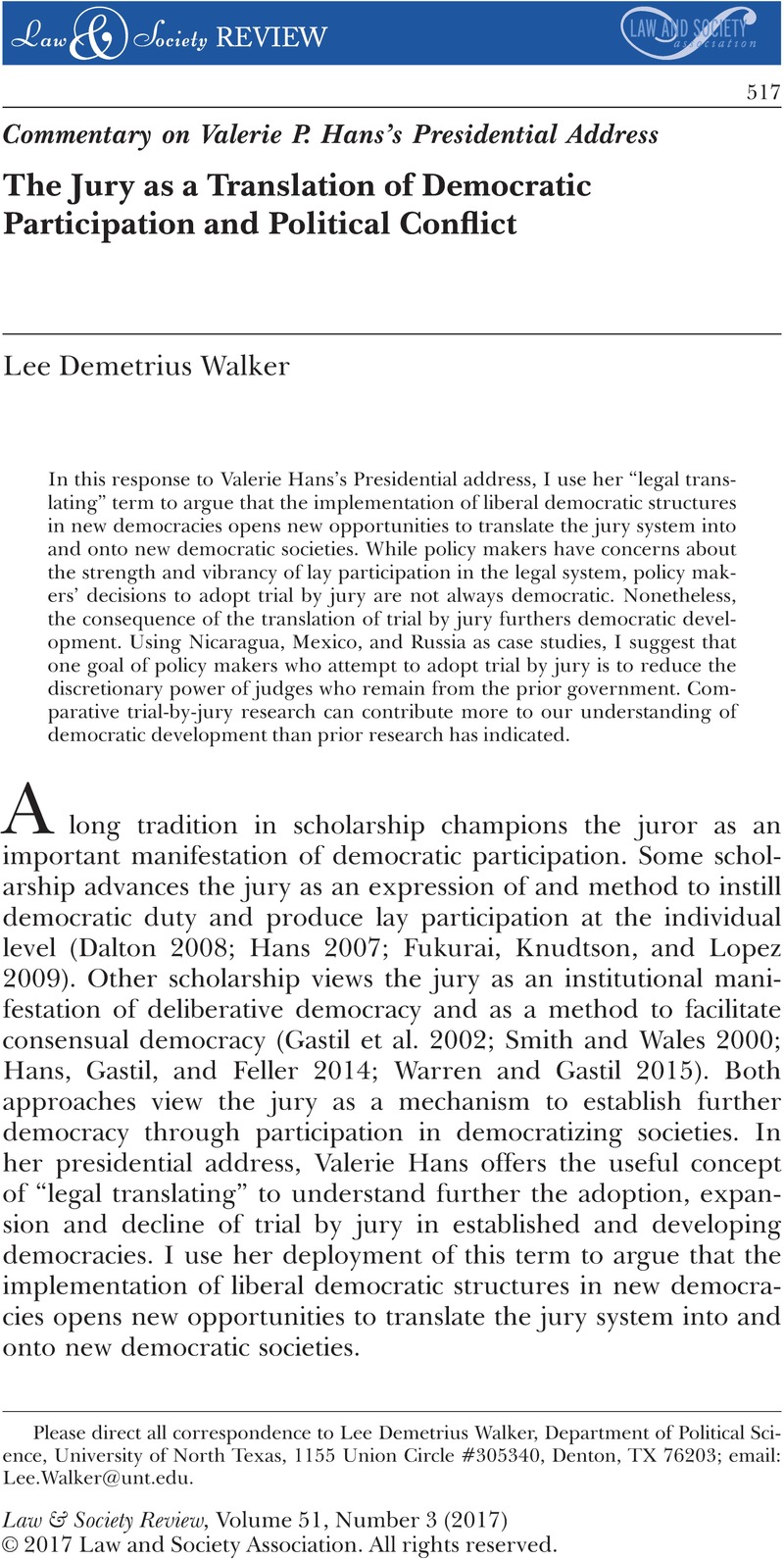Crossref Citations
This article has been cited by the following publications. This list is generated based on data provided by Crossref.
Kaire, José
2019.
The Normative and Material Foundations of Judicial Confidence in Bolivia.
Latin American Politics and Society,
Vol. 61,
Issue. 04,
p.
1.





